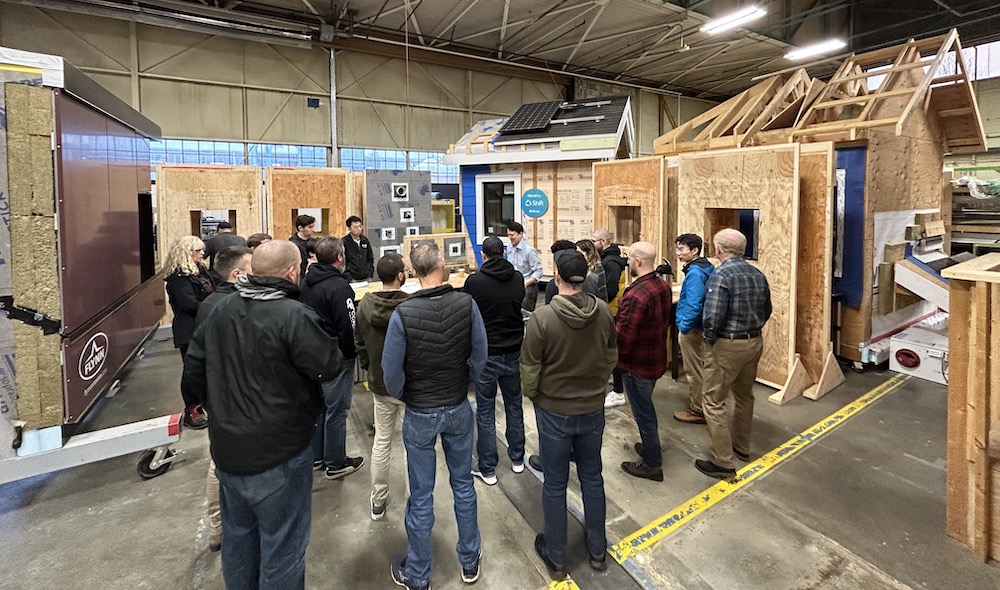StreetSide Learns About Net Zero
Mar 17th, 2023
Continual learning and growing are a key part of what we do at StreetSide to help build better cities. In January, twenty-four members of our team took part in a two-day course at BCIT to learn all about net-zero building.
What’s net zero? It means cutting building emissions until they’re as close to zero as possible. These forward-thinking, environmentally friendly homes are up to 80% more energy efficient than the typical new home.
We’re excited and proud to share that our upcoming Langley townhome project, Cascadia, will have a handful of net-zero ready homes!
We spoke with Development Manager, Kyle Foot, to hear all about the course…
Why was it important to you to take this course?
The UN Environment Program released a report, Emissions Gap Report 2022: The Closing Window, that indicates that global temperatures will rise by 2.8 degrees Celsius above pre-industrial levels by 2100 if no change is made in how the world functions.
For context, the Paris Agreement outlines that 1.5 degrees Celsius is the long-term warming limit, and the global scientific community agrees that warming beyond 2 degrees Celsius will result in significant risks to human life on Earth.
In BC, we’ve already started to feel the impacts of a changing climate with more severe weather events, such as hotter summers and flash flooding. According to the 2020 Global Status Alliance for Buildings and Construction (part of the UN Environment Program), buildings are responsible for 38% of the global carbon emissions.
Our industry needs to do its part in reducing these emissions and securing a livable future for the generations that follow. I feel that taking this course and pursuing any other opportunities to aid in building net-zero-ready homes is my responsibility as a member of this industry, as a parent, and as a global citizen.
What was your biggest takeaway from the course?
First of all, in terms of technical knowledge, I’ve gradually been learning about various components of the building envelope — such as air barriers, vapour barriers, insulation, etc. — and this was an excellent crash course to help explain everything from the ground up. I have a better understanding of what each component does, how various methods of assembling the building envelope are proposed, and how these contribute to net-zero-ready buildings.
From a practical point of view, I think my biggest takeaway from the course was how many opportunities there will be for entrepreneurs to revolutionize building methods and materials to help support the development community in meeting net-zero-ready requirements between now and 2030 (and beyond). Any building material supplier who can help the development and construction industry build to higher levels of the step code, while saving time on site and keeping the costs under control, will have a significant advantage over their competition.
What, if any, knowledge surprised you?
It surprised me how much time and careful attention it takes to ensure the continuity of the air barrier — which has an enormous impact on the ability of a building to achieve its step code targets. Being located primarily in the office, I view these results from the perspective of reports. Seeing first-hand how minimal the error needs to be in penetrating the air barrier and how significant the consequences are was really eye opening.
How will taking this course affect our homes? And, ultimately, the homeowner?
The fact that we had members of both our construction and development teams there was extremely beneficial. Our development team will be able to think critically about how to achieve higher levels of the step code during the design phase, and our construction team can strategize on how to implement the right practices to ensure the design is adhered to by the trades.
This will result in homes that achieve higher levels of the step code — whether it’s through the methods demonstrated in this course or through other methods that we uncover down the line.
Implementing these practices across our industry will limit carbon emissions and global temperature increases. If we can find a way to do this efficiently and affordably, our homeowners will not only have an energy-efficient home, but they will benefit from these savings, too.
We’re so excited about where this knowledge will take us and our future homeowners at StreetSide.
Sign up for updates! Information on our net-zero-ready townhomes in Langley will be released in the coming year.
Back

